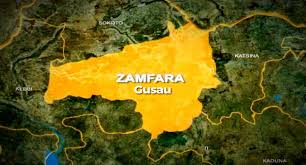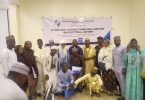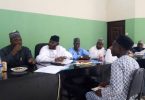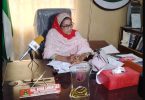
The removal of fuel subsidy has caused further hardship to civil servants in Zamfara state which makes it difficult for them to attend their offices effectively.
An investigation conducted by our reporter has categorically revealed that in some ministries, boards and parastatals most of the government functionaries were absent in their places of work because of the high cost of transportation fares.
When contacted to comment on the absenteeism of civil servants during working hours, the Chairperson of Trade Union Congress (TUC) Zamfara state Comrade Saidu Mudi, described the situation as difficult and called on the state government to look into the possibility of creating at least ten or five percent of basic salary of each worker as subsidy allowance so as to cushion the effects of the subsidy removed by the Federal Government.
He said workers were finding it difficult to cope with the present situations and urged the government to take serious measures in addressing the hardships facing the workers occasioned by high cost of transportation and feeding.
The TUC Chairman who described the state Governor, Dauda Lawal as worker’s friendly by paying all the outstanding salary arrears that was owed by the past administration, said they have confidence in him that he can do more in terms of the worker’s rights, privileges and their welfare.
He saying the organized labour in the state would soon meet with the governor to discuss workers issues.
Also speaking, the chairperson of the Nigeria Labour Congress, Comrade Sani Halliru described the situations of Zamfara civil servants as unbearable as a result of the subsidy removal which makes it difficult for workers to assess their places of work as well as take care of their families.
He further sought government intervention to alleviate the suffering Of workers in the state, saying Zamfara civil servants receive the least salary in Nigeria, hence the need to look into their sufferings.
Abdulrazak Kaura







